#六
Text

Something different today! The term 五臓六腑 [ごぞうろっぷ] comes from traditional Chinese medicine. Its literal meaning is the five viscera and the six internal organs—organs as a TCM concept; not analogous to the anatomical organs. But 五臓六腑 can also mean guts/innards more generally, or figuratively, what's inside your heart. (Though in this case, it's just the name of a nice sushi place.)
Breaking the kanji down by theme:
五 means 5. It's read いつ, いつつ, or ゴ.
六 means 6. It's read む (e.g. む.つ, むっ.つ, むい), ロク, or リク.
臓 means entrails, viscera, or bowels. It's read はらわた or ゾウ.
腑 also means viscera or bowels. It's also read はらわた, or フ.
So let's take a closer look at 臓 and 腑. They both mean guts, they're both read はらわた, and they both use the radical meat-moon ⺼, plus (as you may have noticed if you're an absolute genius) another kanji that can mean storehouse. Yes!
蔵 means storehouse, or to possess, own, or hide. It’s read くら, おさ.める, かく.れる, ゾウ, or ソウ.
府 can mean storehouse, though it more often means urban prefecture or government office. It's read フ.
So, Flesh + Storehouse = Organs. Good mnemonic!
But is there a difference between 臓 and 腑? In modern Japanese, only 臓 is common, unless you're into traditional Chinese medicine. In that context, though, the difference is that 臟 zàng refers to "solid" organs, which are yin, while 腑 fǔ refers to "hollow" ones, which are yang. (Again, not organs in the anatomical sense; sometimes they're described instead as functional entities or systems.)
Anyway, I am going to try to end this post before I overstep my rudimentary understanding of this subject, but 五臓六腑 comes from the Chinese zàngfǔ (simplified: 脏腑; traditional: 臟腑). Zàngfǔ is the backbone of the TCM concept of how the body works. Its literal meaning is hollow and solid organs, or "all the organs."
And this kind of construction is common in kanji vocab: use two contrasting descriptors to refer to everything in a category or to position along a spectrum. For example:
男女 [だんじょ] (men + women) = all genders
老若 [ろうにゃく] (old + young) = all ages
大小 [だいしょう] (big + small) = size; all sizes
凸凹 [でこぼこ] (convex + concave) = bumpy
加減 [かげん] (increase + decrease) = adjust, moderate
苦楽 [くらく] (pleasure + pain) = the good and bad (of life)
高弱 [こうじゃく] (strong + weak) = level of strength
好き嫌い [すきぎらい] (like + dislike) = preferences (usu. food)
and so on.
P.S. - Incidentally, はらわた is more commonly written 腸. This character also shares the same general entrails/viscera meaning, but often refers more specifically to bowels/intestines. (And fun fact: The name 牛腸 Gochō (cow + bowels) was the impetus for me starting this blog!)
48 notes
·
View notes
Text
Kanji for "all", "whole", "everything", everybody", "everyone"
皆 = mina / kai
皆勤する - Kaikinsuru - to not miss a single day - かいきんする
皆様 - Minasama - ladies and gentlemen / everybody / all of you - みなさま
皆 - Mina - all / everybody / everything - みな
皆無 - Kaimu - none / nothing (at all) / nil - かいむ
皆さん - Minasan - ladies & gentlemen / everybody / all of you - みなさん
皆既食 - Kaikisyoku - a total eclipse - かいきしょく
_________________________________
Kanji for "stop", "halt”
止 = to•maru / to•meru / shi
痛み止め - Itamidome - a painkiller - いたみどめ
止める - Tomeru - to stop (something) / to put and end to - とめる
立ち止まる - Tachidomaru - to stop / to halt / to pause / to come to a stop - たちどまる
中止 - Chuushi - discontinuation / suspension / cancellation - ちゅうし
止まる - Tomaru - to stop / to halt - とまる
禁止 - Kinshi - (a) prohibition / a ban - きんし
_________________________________
Kanji for "thing", "matter", "fact", "affair"
事 = koto / ji / zu
出来事 - Dekigoto - an event / an incident - できごと
用事 - Youji - a task / an errand / things to do - ようじ
返事 - henji - an answer / a reply - へんじ
大事な - Daijina - important / precious / valuable - だいじな
事故 - Jiko - an accident / a breakdown / a failure / an incident - じこ
見事な - Migotona - beautiful / excellent / fine / splendid / marvelous - みごとな
_________________________________
Kanji for "same", "the same", "equal".
同 = ona•ji / dou
同一の - Douitsuno - the same (as) / identical (with) - どういつの
同じように - Onajiyouni - in the same way / likewise / similarly - おなじように
合同 - goudou - (a) combination / (a) union / merger - ごうどう
同時に - Doujini - at the same time / simultaneously - どうじに
同じ - Onaji - one and the same / the same / identical / alike - おなじ
同じ人 - Onajihito - the same person - おなじひと
_________________________________
Kanji for "fish"
魚 = kyo / uo / sakana
金魚 - Kingyo - a goldfish - きんぎょ
魚を食べる - Sakana wo taberu - to eat fish - さかなをたべる
魚座 - Uoza - pisces (12th) sign of the zodiac) - うおざ
魚屋 - Sakanaya - a fish store [shop] / a fish market - さかなや
焼き魚 - Yakizakana - (a) grilled [boiled] fish - やきさかな
魚つり - Sakanatsuri - fishing - さかなつり
_________________________________
Kanji for "cow", "ox", "cattle", "bull", "beef"
牛 = gyuu / ushi
牛 - Ushi - a cow / a bull / cattle - うし
狂牛病 - Kyougyuubyou - mad cow disease (BSE) - きょうぎゅうびょう
牛乳 - Gyuunyuu - (cow's) milk - ぎゅうにゅう
牛肉 - Gyuuniku - beef - ぎゅうにく
牛丼 - Gyuudon - rice covered with beef and vegetables - ぎゅうどん
子牛 - Koushi - a calf - こうし
_________________________________
Kanji for "city", "town", "market", "fair"
市 = shi / ichi
市長 - Shichou - a mayor - しちょう
市民 - Shimin - a citizen / the citizens / the citizenry - しみん
都市 - Toshi - a city / a town - とし
神戸市 - Koubeshi - Kobe city (of Hyogo prefecture) - こうべし
市場 - Ichiba / shijou - a market(place) - いちば
朝市 - Asaichi - a morning market - あさいち
_________________________________
Kanji for "morning", "dynasty", "reign", "rule"
朝 = asa / chou
朝食 - Choushoku - breakfast - ちょうしょく
朝御飯 - Asagohan - breakfast - あさごはん
朝日 - Asahi - the morning (rising) sun - あさひ
早朝 - Souchou - the early morning - そうちょう
朝刊 - Choukan - a morning newspaper - ちょうかん
朝 - Asa - morning - あさ
_________________________________
Kanji for "daytime", "noon", "midday"
昼 = hiru / chou
昼 - Hiru - noon/ midday / the daytime - ひる
昼寝- Hirune - an afternoon nap / a siesta - ひるね
昼休み - Hiruyasumi - (a) lunchtime [hour/break] - ひるやすみ (see kanji for rest 休 )
昼間 - Hiruma - daytime - (during) the day - ひるま
昼御飯 - Hirugohan - lunch / luncheon - ひるごはん
昼食 - Chuushoku - lunch / luncheon - ちゅうしょく
_________________________________
Kanji for "evening", "dusk"
夕 = seki / yuu
夕食 - Yuushoku - dinner / supper - ゆうしょく
夕べ - Yuube - an evening / last night - ゆうべ
夕刊 - Yuukan - an evening paper - ゆうかん
夕立 - Yuudachi - a (summer afternoon) shower - ゆうだち
夕日 - Yuuhi - the evening sun / evening sunlight - ゆうひ
夕方 - Yuugata - (an) evening - ゆうがた
_________________________________
Kanji for "night", "evening", nighttime"
夜 = ya / yo / yoru
夜中 - Yonaka - midnight - よなか (see kanji for "inside", "middle" 中)
夜 - Yoru - (a) night / (an) evening - よる
夜間(ni) - Yakan(ni) - at night / in the night [night-time] - よかん(に)
金曜の夜 - Kinyou no yoru - Friday night - きんようのよる
夜景 - Yakei - a night view (scene) - やけい
夜明け - Yoake - dawn / daybreak - よあけあ
_________________________________
Kanji for "one", "once", "first"
一 = ichi / itsu / hito / hito•tsu
一つ - Hitotsu - one (thing) - ひとつ
一度 - Ichido - once / one time / (on) one occasion / one degree - いちど
一日 - tsuitachi - the first day of the month - ついたち
一日 - Ichinichi - a [one] day - いちにち
一人 - Hitori - one person - ひとり
一月 - Ichigatsu - January - いちがつ
一月 - Hitotsuki - a [one] month - ひとつき
一緒に - Isshouni - together / with / along with / at the same time - いっしょうに
_________________________________
Kanji for "two", "second".
ニ = ni / futa / futa•tsu
二十日 - Hatsuka - twentieth (day of the month) / twenty days - はつか
二月 - Nigatsu - February - にがつ
二月 - Futatsuki - (a period of) two months - ふたつき
二十 - Nijuu - twenty - にじゅう
二人 - Futari - two people - ふたり
二日 - Futsuka - the second day of the month / two days - ふつか
二つ - Futatsu - two (things) - ふたつ
_________________________________
Kanji for "three", "third"
三 = san / mi / mi•tsu / mit•tsu
三角 - Sankaku - a triangle - さんかく
三人 - Sannin - three people - さんにん
三月 - Sangatsu - March - さんがつ
三月 - Mitsuki - (a period of) three months - みつき
三つ - Mittsu - three (things) - みっつ
三回 - Sankai - three times - さんかい
三日 - Mikka - the third day of the month / three days - みっか
_________________________________
Kanji for "four", "forth"
四 = shi / yo / yo•tsu / yot•tsu / yon
四回 - Yonkai - four times - よんかい
四人 - Yonin - four people - よにん
四字熟語 - Yojijukugo - a four-character idiomatic compound - よじじゅくご
四つ - Yottsu - four (things) - よっつ
四月 - Shigatsu - april - しがつ
四日 - Yokka - the fourth day of the month / four days - よっか
_________________________________
Kanji for "five", "fifth"
五 = go / itsu / itsutsu
五時 - Goji - five o'clock - ごじ
五人 - Gonin - five people - ごにん
五月 - Gogatsu - May - ごがつ
五つ - Itsutsu - five (things) - いつつ
五日 - Itsuka - the fifth day of the month / five days - いつか
五階 - Gokai - the fifth floor - ごかい
_________________________________
Kanji for "six", "sixth"
六 = roku / mu / mu•tsu / mut•tsu / mui
六つ - Muttsu - six (things) - むっつ
六時 - Rokuji - six o'clock - ろくじ
六人 - Rokunin - six people - ろくにん
第六感 - Dairokkan - a sixth sense / hunch / (an) intuition - だいろっかん
六日 - Muika - the sixth day of the month / six days - むいか
六月 - Rokugatsu - June - ろくがつ
_________________________________
Kanji for "seven", "seventh"
七 = shichi / nana / nana•tsu / nano
七夕 - Tanabata - July 7th Festival of the Weaver - たなばた (Also known as the star festival, according to legend 2 lovers are seperated by the milkyway and only meet once a year)
七つ - Nanatsu - seven (things) - ななつ
十七 - Juushichi - juunana - seventeen - じゅうしち / じゅうなな
七日 - Nanoka - the seventh day of the month / seven days - なのか
七人 - Shichinin - seven people - しちにん
七月 - Shichigatsu - July - しちがつ
_________________________________
Kanji for "eight", "eighth"
八 - hachi / ya / ya•tsu / yat•tsu / you
八人 - Hachinin - eight people - はちにん
八月 - Hachigatsu - August - はちがつ
八日 - Youka - the eight day of the month/ eight days - ようか
八方美人 - Happoubijin - one who is affable to everybody - はっぽうびじん
(Affable - friendly/ good-natured/ easy to talk to)
八つ - Yattsu - eight (things) - やっつ
十八 - Juuhachi - eighteen - じゅうはち
_________________________________
Kanji for "nine", "ninth"
九 = kyuu / ku / kokono / kokono•tsu
九つ - Kokonotsu - nine (things) - ここのつ
九分 - Kyuufun - nine minutes - きゅうふん
九十 - Kyuujuu - southernmost of Japan's main islands - きゅうじゅう
九時 - Kuji - nine o'clock - くじ
九月 - Kugatsu - September - くがつ
九日 - Kokonoka - the ninth day of the month / nine days - ここのか
_________________________________
Kanji for "ten", "tenth"
十 = juu / juutsu / too / to
五十音 - Gojuuon - the Japanese (kana) syllabary - ごじゅうおん
十月 - Juugatsu - October - じゅうがつ
十個 - jukko / jikko - ten (things) - じゅっこ / じっこ
十人 - Juunin - ten people - じゅうにん
十日 - Tooka - the tenth day of the month / ten days - とおか
二十歳 - Hatachi - twenty (years of age) / one's twentieth year - はたち
_________________________________
Kanji for "hundred", "numerous".
百 = Hyaku
三百人 - Sanbyakunin - three hundred people - さんびゃくにん
百点 - Hyakuten - a [one] hundred points / a perfect mark - ひゃくてん
百パーセント - Hyakupasento - one hundred percent / 100% - ひゃくパーセント
百科事典 - Hyakkajiten - an encyclopedia - ひゃっかじてん
八百屋 - Yaoya - a vegetable store / a greengrocery - やおや
百円 - Hyakuen - a [one] hundred yen - ひゃくえん
_________________________________
Kanji for "thousand"
チ = Sen / chi
千代田区 - Chiyodaku - Chiyoda Ward (of Tokyo) - ちよだく
五千円 - Gosenen - 5000 yen - ごせんえん
千葉県 - chibaken - Chiba prefecture (east of Tokyo) - ちばけん
二千人 - Ninsennin - two thousand people - にせんにん
千羽鶴 - Senbaduru - (string of) 1000 origami [paper] cranes - せんばづる
千切りにする - Sengirinisuru - to cut into thin strips - せんぎりにする
_________________________________
Kanji for "ten thousand", "myriad"
万 = man / ban
案(が)一Man(ga)ichi - by any chance / by some rare accident - まんがいち
二万人 - Nimannin - twenty thousand people - にまんにん
一万円 - Ichimanen - ten thousand yen - いちまんえん
万国 - Bankoku - all (the) coutries on earth / all nations - ばんこく
万引き - Manbiki - shoplifting - まんびき
万年筆 - Mannenhitsu - a fountain pen - まんねんひつ
#万#language#language fun#japanese language#kanji#チ#百#十#九#八#七#六#五#四#三#二#lot of kanji#一#皆#止#事#同#魚#牛#市#朝#昼#夕#夜
2 notes
·
View notes
Photo

【すごい猫 Part2】おしゃべり猫の六は本当に言葉を理解して会話をしている。この動画で前回の「すごい猫」が偶然に撮れたものではないと分かってもらえるはず | [生まれ変わりの猫] 六
meowmoe.com
0 notes
Text
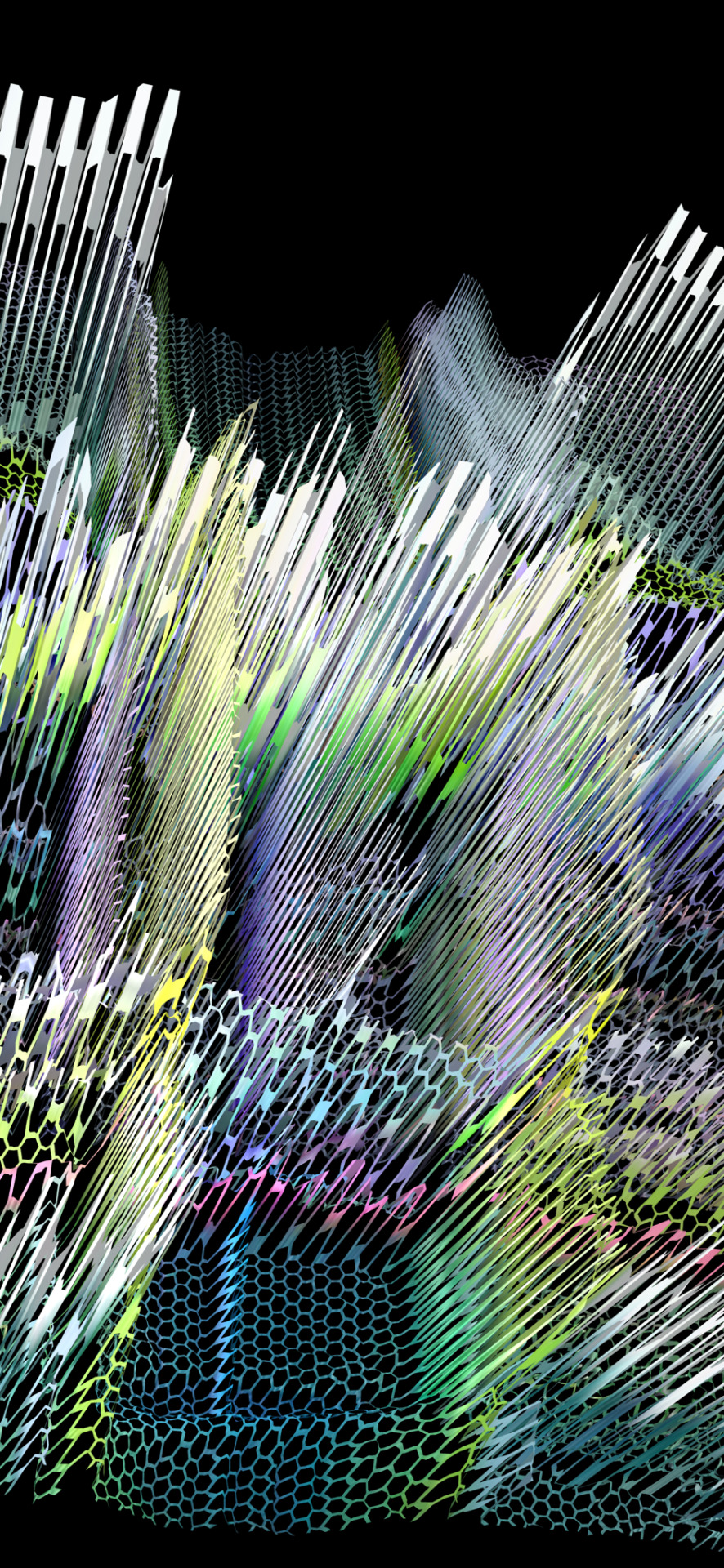
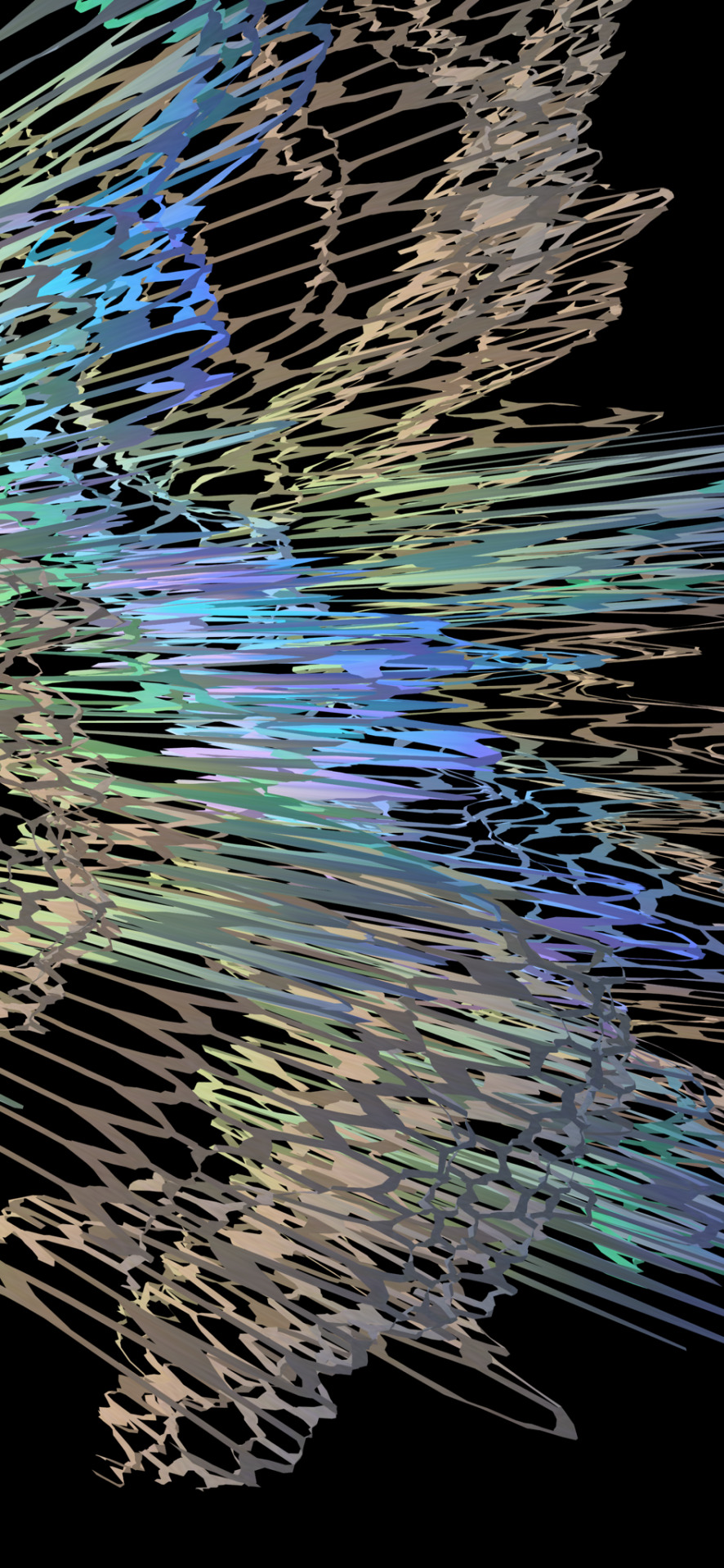

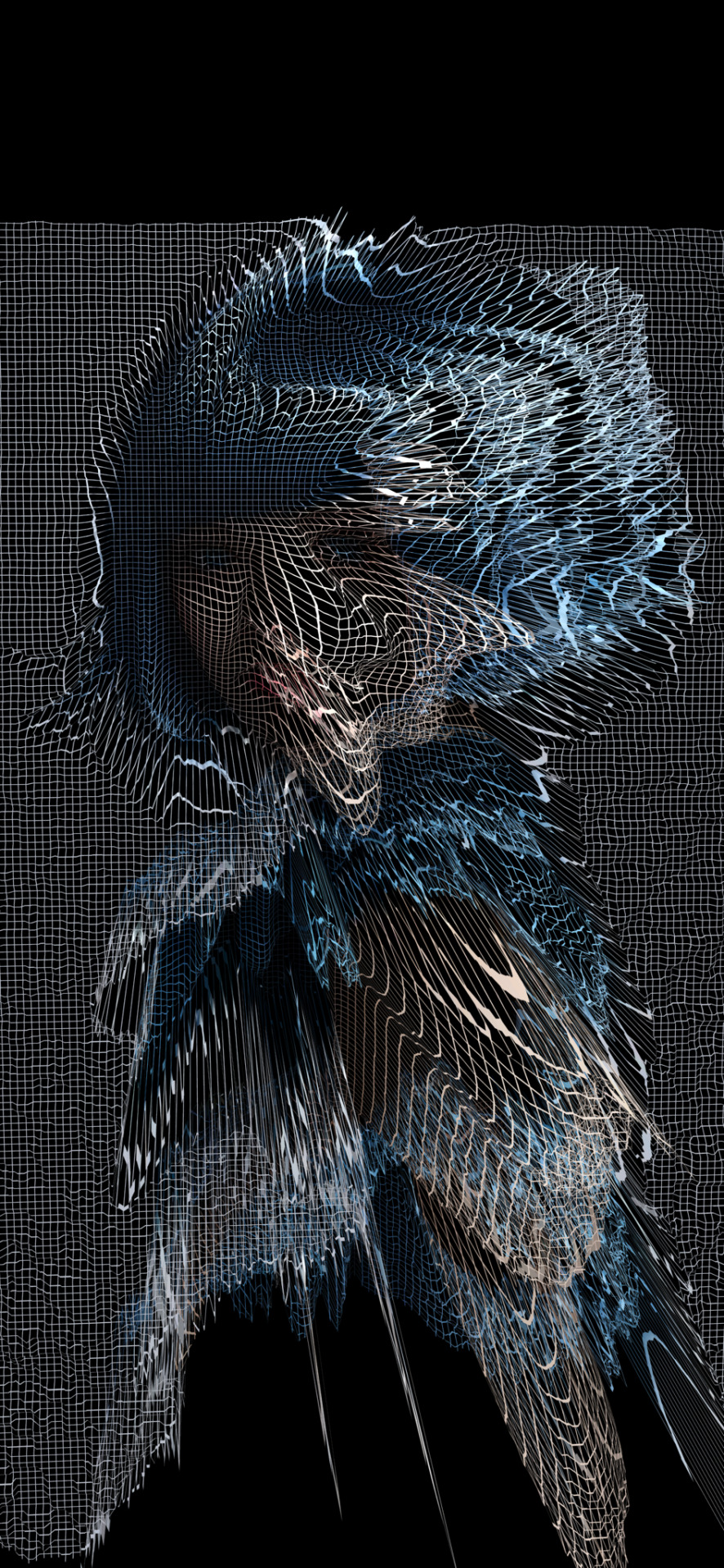
glitch sample _ process art data_
iphone _ wallpaper _size
PLUS09386.
Y+-DESIGN.
2024.
#plus09386#artists on tumblr#y+-design#アンビエント#波形#グリッチ#デジタル#女性#女の子#青色#謎#六#ダーク#dark#ambient#mdr6body#wallpaper#壁紙#iphone#デザイン#アート
0 notes
Text
女找男

爱上我和爱上我,两者并不冲突。本人性欲比较强,喜欢挑战各种姿势,有兴趣的哥哥 弟弟可以加我WhatsApp:60 11 6971 5316
#马来西亚一夜情#马来西亚约炮#马来西亚约会交友伴游#马来西亚Malaysia#槟城怡保#吉隆坡KL#新山#馬六甲#Kuching Sibu Kota Kinabalu#马来西亚丝袜#馬來西亞约炮#马来西亚小姐姐#马来西亚反差#馬來西亞炮友#馬來西亞交友#馬來西亞一夜情#馬來西按摩#馬來西亞兼職#馬來西亞下水
1K notes
·
View notes
Text





2K notes
·
View notes
Text
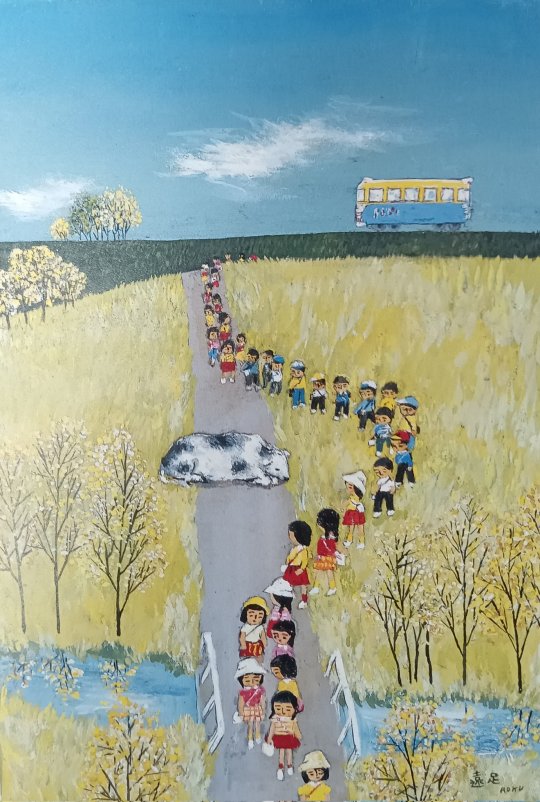
Rokuro Taniuchi "Field Trip"
谷内六郎 「遠足」
19K notes
·
View notes
Text


A business name today! すし屋の勘六 Sushi-ya no Kanroku. This caught my eye partly because of the mixing of different handwriting styles, partly because of the vertigo I got from reading their kanji phone number vertically in kanji:
三
一
七
三
七
三
三.
Which is actually much easier with the size of tumblr’s line breaks. Anyway, すし屋 (or 寿司屋 or 鮨屋) is a sushi shop, and you know 六 (ろく) is six. The new character, 勘 (カン), is a nifty kanji meaning intuition, perception, or sixth sense. Except in the paranormal sense, a sixth sense is 第六感 (だいろっかん), with 感 (also カン!), meaning emotion, feeling, or sensation. So 勘 is a knack or *the* touch, while 感 is something you feel, either physically or emotionally.
43 notes
·
View notes
Text
More of my kunqu opera au except it's shadowpeach...
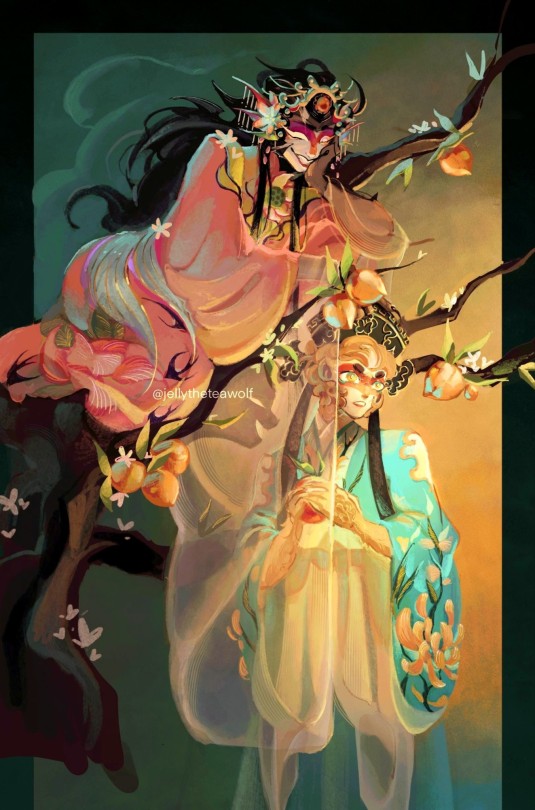
It's actually so over I can't believe fucking gay monkeys have a grip on my brain like this I'm lowkey embarrassed but WHATEVERRRRR
Zoom out + no flower ver
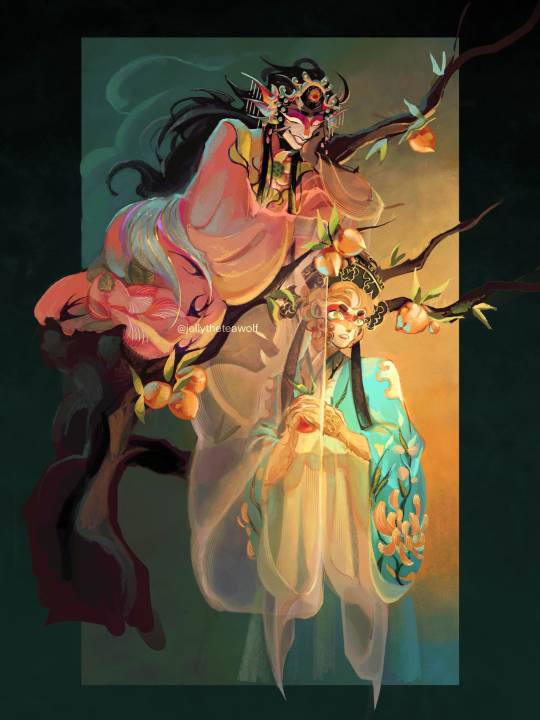
Closeups

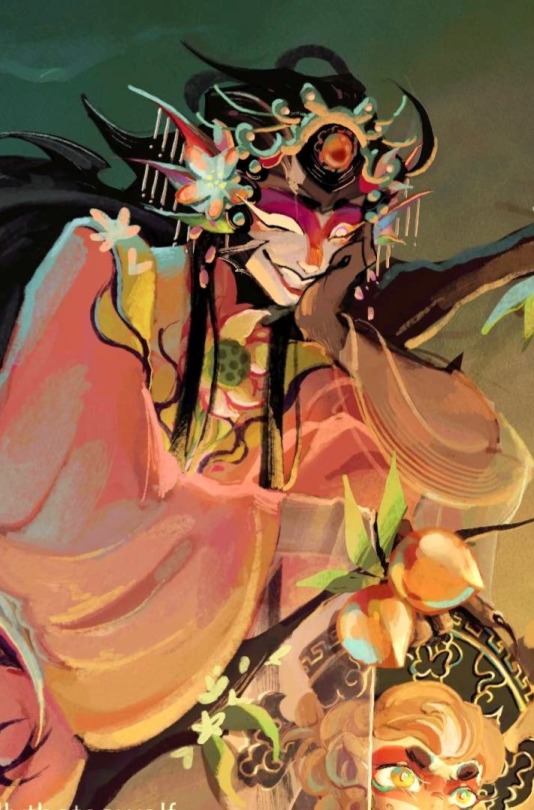
Macaque is my bbg I love his stupid ass sm I can't believe this FUCK
Also I think it's so cute that wukong has stage fright like yea ur doing great (hits the gong once) his ass could NOT perform opera but that's okay macaque carries the performance /lhj
#art#fanart#artists on tumblr#digital art#illustration#character design#lmk#lego monkie kid#six eared macaque#lmk fanart#lmk macaque#lmk sun wukong#六儿猕猴#孙悟空#shadowpeach#sun wukong#昆曲#opera#西游记#journey to the west#chinese mythology
522 notes
·
View notes
Text

十六夜ノノミ By 晃田ヒカ
526 notes
·
View notes
Text

PLUSplus09386...
#plus09386#plusplus09386#YouTube#subchannel#six#六#禄#newintersect#yuriplus#アークラ大サーカス#御殿場#デザイン#アート#壁紙#シンプル#青空#空
0 notes






